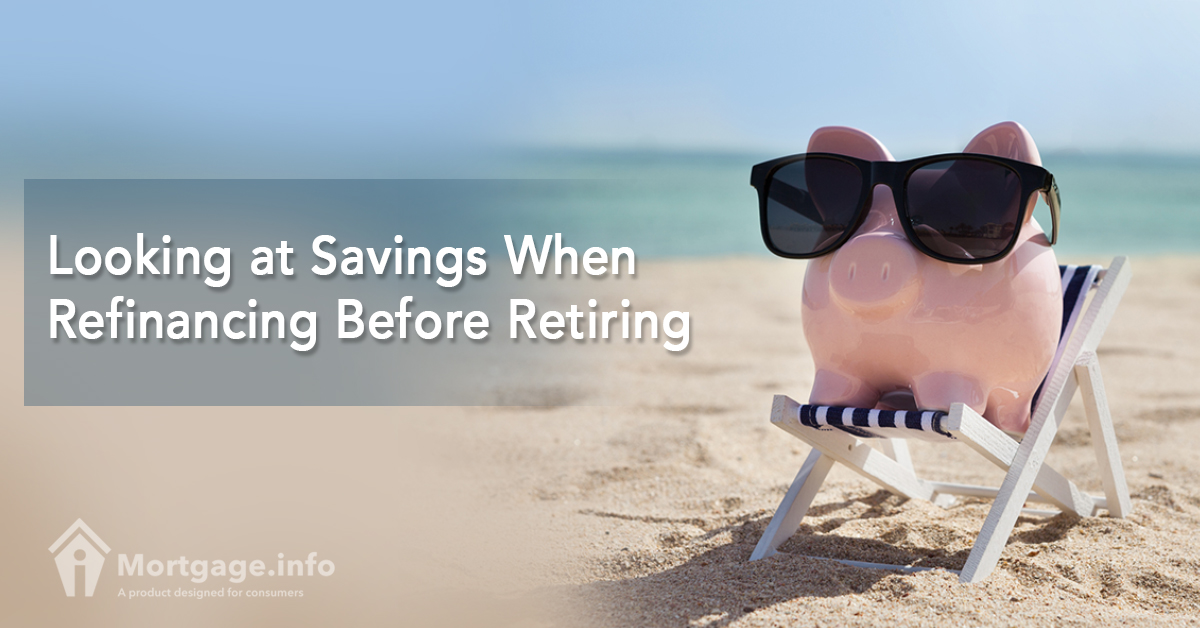
Are you financially ready to retire? They say you’d need at least 80% of your pre-retirement income to keep your current lifestyle. And your savings as you approach retirement is affected by many factors such as where you want to live. If you plan to stay in your old home, does it make sense to keep your current loan or refinance? Will you be able to save if you take the road to refinancing before retiring? »Get in touch with a lender online.»
Saving and Refinancing Before Retiring
It’s a common goal to retire debt-free, mortgage included. But sometimes, it’s not possible. Plus, there are incentives to refinance that are too good to be passed up. Savings, for example. These savings can help you get by retirement, an addition to your retirement income sources such as pension, Social Security benefits, annuities, investment portfolio, etc.
When does refinance equal savings? Consider these scenarios.
1. If you refinance to get a lower rate. While experts can’t really say how low a rate could be to consider refinance a wise financial move, a reduction of at least 1% in rates can help you save in monthly mortgage payments.
2. If you refinance to get cash out of equity. You can tap your home equity and convert it to cash via cash-out refinance. The amount you borrowed against your equity is a good source of funds. You can use it to fund a long-term health plan, invest and diversify your holdings, and save for the future years.
3. If you refinance to get a shorter term. Factor in the lower rate, replacing a 30-year fixed mortgage with a 15-year fixed mortgage can be a good switch in the long run.
»Get expert advice on refinancing here.»
Possible savings on refinancing to a shorter term may not be realized if you’re 15 to 20 years in paying your mortgage. If you take out a 15-year loan on your 20th year, that’s effectively extending your loan term to 35 years when it could have been paid off in 30 years. Even if you are in the 15th year of your 30-year fixed, you have to pay closing costs to close your new loan. These closing costs can be expensive, although it’s possible to roll them into the loan.
But, if it’s financially sound for you to take another 30-year fixed, you can pay the loan faster by making a 13th mortgage payment. But be sure to tell your mortgage company what’s that extra payment for.
4. If you fit into some or all of these conditions. The savings promised by refinancing can be achieved if you get the best rates and terms possible. To fit the bill, you should have good credit and a home equity of at least 20%.
Refinance allows you to save if you plan to stay in the home, pay 1 percent or more than your current mortgage rate, and hold an adjustable-rate mortgage. Also, you save when you refinance if your lender offers to refinance at a low or no-cost option.
Savings aside, can you afford to refinance before retirement?
Retirement would mean a shift from regular employment income to retirement-based income. And it’s only reasonable to expect a reduction in income once you retire. The general rule is to allot 45% of your income for mortgage and other fixed-payment debts.
Against this backdrop, it’s important to know if your cash flow is enough to make the mortgage payments in retirement. Interestingly, if you can’t afford the mortgage bill but want to stay in that home, it makes all the more sense to refinance and get a lower rate.
Have questions about refinancing? Still undecided whether to refinance? »Click here, get to talk to one of our lenders.»
